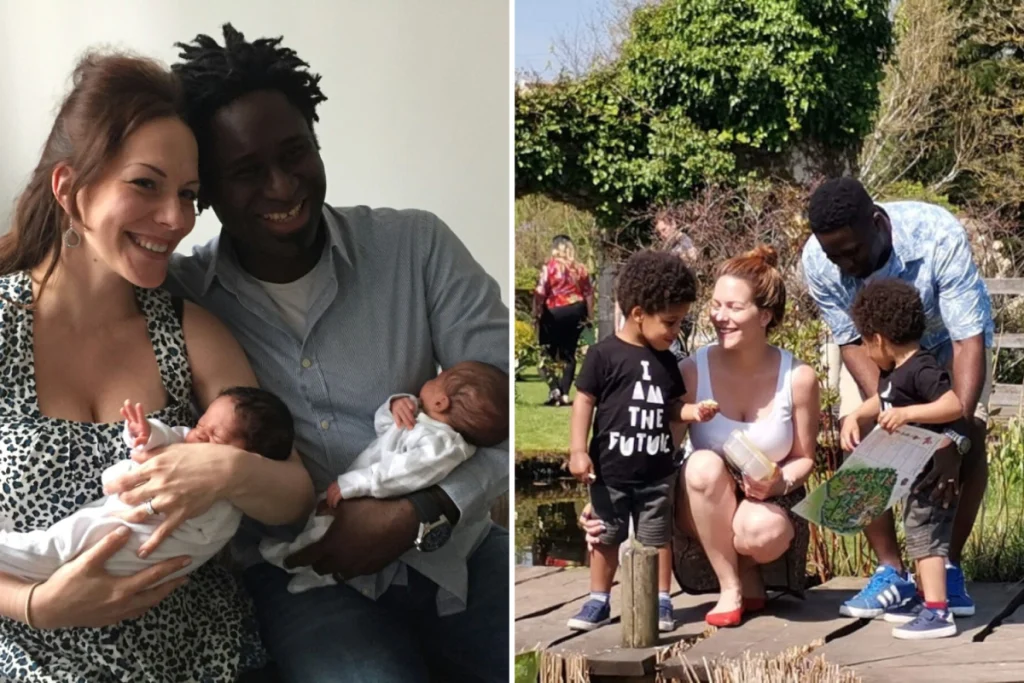From Darkness to Advocacy: One Mother’s Journey Through Postpartum Depression
Ivana Poku remembers the moment her world changed forever. Sitting quietly at home with her few-month-old twins, one in her lap and the other in a bouncer, something inside her suddenly shifted. “It was like something possessed my brain and my body,” she recalls. “I felt this strong urge to hurt him.” Recognizing the danger, a small part of her—what she now calls her “healthy part”—responded quickly. She secured the baby in the chair, ran to her bedroom, and locked herself inside, terrified of what had just happened. In that moment of clarity amidst confusion, she understood something was terribly wrong. “It’s not like you’re sitting there thinking, ‘Let’s hurt my baby,'” Poku explains. “It’s not you. It’s an illness and this is the symptom of the illness.” This frightening experience marked a pivotal moment in her battle with what she later understood was postpartum depression, perhaps even bordering on postpartum psychosis—though she never received an official diagnosis at the time.
The descent into postpartum depression had begun quietly after the birth of her twins when Poku was 32. Instead of experiencing the rush of maternal love she’d been told to expect, she felt numbness and overwhelming guilt. “I didn’t feel happy,” she admits. “I thought that made me a horrible mother.” Clinical psychologist Dr. Shahrzad Jalali explains that these feelings are far more common than many realize: “About 70 to 80 percent of new mothers experience what we call the ‘baby blues’ in the first few days after giving birth.” However, when symptoms persist beyond several weeks and begin interfering with daily functioning, it becomes what clinicians recognize as postnatal depression, affecting approximately one in seven new mothers worldwide. For Poku, the condition manifested in disturbing ways. She missed her previous life, felt disconnected from her new one, and began to despise herself for these feelings. Sometimes while watching her sleeping babies, she would have intrusive thoughts about them never waking up. “I’d think, ‘If they died, that would be amazing,'” she admits—thoughts that horrified her but that she couldn’t control.
Poku’s situation was made more challenging by isolation. Her family had just moved to a new town where she knew no one. Her husband worked long hours, leaving her alone most of the time with no support system. “No friends, no family, no support. That’s not okay,” she reflects. Despite having been given leaflets and phone numbers for support lines, the paralyzing nature of depression made reaching out feel impossible. “They tell you to call someone, but when you’re in that state, it’s the last thing you can do,” she explains. The silence became her worst enemy, as she continued pretending everything was fine while internally falling apart. Shame kept her silent, convinced that she was failing where other mothers were succeeding. “You don’t know you have depression,” she says. “You just feel like you’re failing—that everyone else is enjoying their babies and you’re not.”
The turning point in Poku’s journey came unexpectedly when a friend dropped by and found her in a state she couldn’t hide. “I told her everything, and she didn’t judge me. That was so liberating,” she recalls. Her husband also provided crucial support, reminding her that she was raising twins without a support network, and that struggling didn’t indicate weakness but humanity. “When I gave myself some compassion, everything started to change,” Poku says. This realization began her healing process, but it wasn’t the end of her story—rather, it was the beginning of a new mission. As she recovered, she began speaking with other mothers and discovered that even those who appeared to have everything together were often suffering silently. This revelation sparked a purpose: “I realized it wasn’t just me,” she says. “And I knew it was my duty to make a difference for future moms.”
Turning her pain into purpose, Poku launched Mum’s Journey, a blog where she writes candidly about motherhood realities and postpartum mental health. She later published “Motherhood: The Unspoken,” bringing together stories from mothers worldwide to offer what she describes as “a comfort hug in book form.” Her work extends beyond writing; she now runs courses on preparing for postpartum emotional wellbeing, designed not to frighten expectant mothers but to ensure no one feels as unprepared and isolated as she once did. “If I had known those feelings were normal,” she reflects, “I wouldn’t have struggled in silence. Proper education is essential.” Dr. Jalali echoes this sentiment, emphasizing that postnatal depression is highly treatable and that support is crucial: “It’s important for her not to be alone with the baby. And then compassion, no judgment. If you know someone who’s given birth, maybe check up on them. Maybe offer your support because it is a very tough time for a woman.”
Today, Ivana Poku is a mother of three and a respected maternal mental health advocate, mentor, and writer working to dismantle the stigma surrounding postpartum mental illness. Though not a clinician, her lived experience has made her a trusted voice in the maternal wellness community and a lifeline for women who see themselves in her story. “Many mothers have told me I helped them more than a psychologist,” she shares, “Maybe because I’ve been there.” Her journey from the depths of postpartum depression to becoming an advocate for maternal mental health illustrates the power of breaking silence and finding purpose in pain. Through her work, she continues to spread a vital message to new mothers everywhere: your struggles don’t make you a failure, asking for help isn’t weakness, and most importantly—you are not alone. As both Poku and Dr. Jalali emphasize, proper support, education, and compassion can transform the postpartum experience, turning what might be the darkest chapter of motherhood into one of healing and eventual growth.















